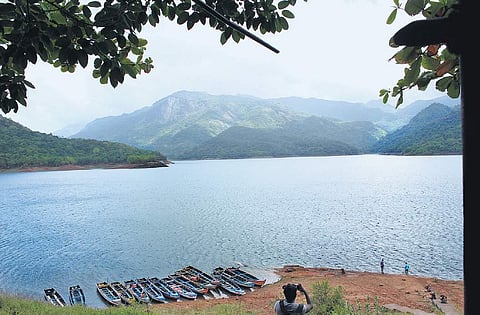

THOOTHUKUDI: In a milestone achievement, Thoothukudi Corporation has successfully generated treated water from the Sewage Treatment Plant (STP) at Tharuvaikulam and has begun supplying it to industries. This could potentially reduce the dependency of industries on the Thamirabarani River.
Currently, the water-intensive industries in the district draw water from the Srivaikuntam anaicut under the 20 MGD (millions of gallons per day) scheme. Water supply to industries often draws flak during summer in the context of failed monsoons.
An STP of 28 MLD (millions of litre per day) capacity has been established in Tharuvaikulam at a cost of `53 crore under the Smart Cities Mission scheme. The Underground Drainage (UGD) lines carry the sewage collected from houses in the Thoothukudi corporation areas, to the STP, where it is treated.
According to a senior corporation official, over 40 wards out of 60 are covered by three UGD schemes. "The first scheme, in which the UGD lines were set up for 20,932 houses in 27 wards as per the Tamil Nadu Water Supply and Drainage Board (TWAD), has been completed. Around 15 MLD of sewage flows to the STP through these UGD lines. However, around 6,527 houses in the 27 wards are yet to be linked to the UGD lines. While the work is underway to set up the connections to houses in eight other wards, a tender has been floated for the same in another five wards," he said.
Speaking to TNIE, Collector Dr K Senthil Raj said the STP currently receives 7-10 MLD of wastewater from corporation areas and generates more than 6 MLD of treated water. Over 10 tanker lorries are used to transport the treated water to SPIC for industrial purposes, he said, adding that the district administration is yet to fix the charge.
Currently, the chemical oxygen demand (COD), biological oxygen demand (BOD) and total suspended solids (TSS) have come down drastically in the treated water, indicating that it is usable for any industrial purpose. The TDS (Total Dissolved Solid) level is 1,000-1,500 units, which the industries have sought to reduce to below 500 units to make it suitable for a wide range of applications. "It requires a secondary treatment of alum treatment, membrane filtration and reverse osmosis," the collector said.
"The STP and the secondary treatment plant project has been expedited in order to cater to the needs of the industries, and to reduce the extraction of water from Thamirabarani River for industrial purposes. This way, the river water can be utilised primarily for drinking and agricultural purposes," the collector added.
Thoothukudi Corporation commissioner Dinesh Kumar told TNIE that once the STP is operated to its full capacity, it could generate more than 20-21 MLD of treated water per day, which will cater to the needs of water-intensive industries functioning in SIPCOT and other areas. Thus it will greatly reduce the pressure on Thamirabarani river water supply," the official added.
A senior official told TNIE that the production of treated water at STP is economically efficient compared to a desalination plant. The production cost of treated water is Rs 30 per 1,000 litre in STP while it is Rs 80 per 1,000 litre in desalination plants, he noted.